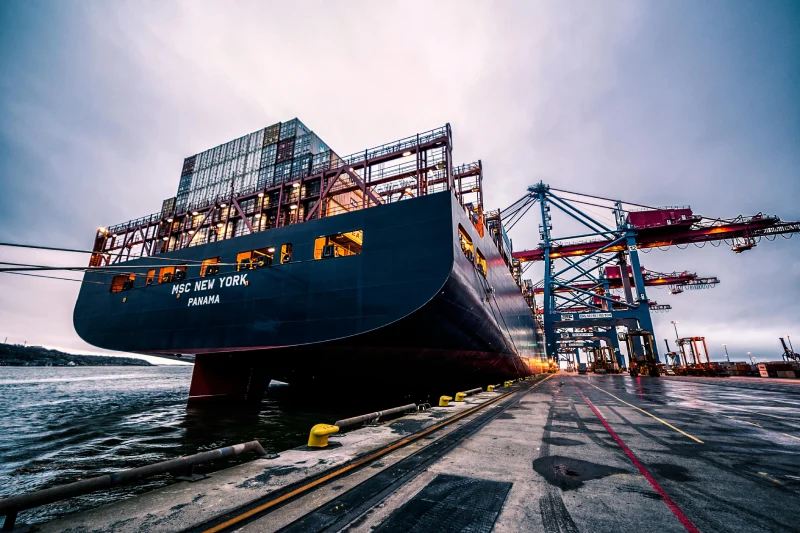
Home → Incoterms 2020 – what is worth knowing about it?
Incoterms (International Commercial Terms) are widely recognized regulations that govern the sale of goods, including aspects such as insurance, product condition, and liability. They provide a standardized framework for transporting and selling goods internationally, helping to streamline the application of relevant laws. These rules were established by the International Chamber of Commerce, which represents traders from over 100 countries. They take into consideration all modes of transportation. Given the intricacy of this system, the Incoterms can be classified into several groups, namely C, D, E, and F, with further subcategories within each group.
Under Group C (Main Carriage Paid) in Incoterms 2020, the seller enters into a contract of carriage with the carrier and bears the costs associated with the transport. The seller also takes responsibility for export clearance. The risk passes to the buyer at the time of shipment. Once the goods are loaded, all issues, transport costs and other incidents become the responsibility of the buyer.
CFR Cost and Freight is a sea freight rule where the seller is not obliged to take out insurance for the goods. The seller only has to bear the costs up to the point of delivery to the yacht and the freight, the rest is the responsibility of the buyer.
CIF or Insurance and Freight – when using Incoterms 2020 CIF, the seller is responsible for paying and arranging insurance for the buyer. He also pays the freight.
CPT Carriage Paid to – this rule means that the seller must enter into the relevant agreement with the buyer. Thus, he is not responsible for the condition of the goods and their transport.
CIP Carriage and Insurance paid to – the seller has similar obligations to the CPT rule. Unlike CPT, the seller is obliged to insure against any loss or damage to the buyer’s goods from delivery to destination. The seller is required to take out insurance with the highest level of cover under Carriage Clause A to cover the buyer’s risk.

In Group D (Arrival), the seller is obliged to deliver the goods to the specified place or port of destination.
DAP Delivered at place. In this rule, the seller is obliged to deliver the goods and thus transfers all responsibility to the buyer.
DPU Delivered at place unloaded. The seller is responsible for paying the transport costs and bears the risk of delivering the goods to the specified place of unloading. The unloading place can be anything, whether covered or uncovered. In addition, the seller is responsible for arranging customs clearance and unloading the goods at the unloading site. The buyer, on the other hand, is responsible for organising import clearance and all related activities.
DP Delivered Duty paid – During transport, the seller is mainly responsible for the whole process. He covers the transport costs and assumes the risk of delivering the goods to the specified address. In addition, the seller prepares the goods for unloading, fulfils all export and import obligations, and pays all customs duties.
Under Group E (Departure), the seller provides access to the goods for the buyer at the specified point of issue, in accordance with the seller’s instructions. The seller is not responsible for either customs export clearance or the risks and costs of loading. There is only one Incoterms in group E – EXW.
EXW EX Works – here the receipt of goods takes place from the factory or plant. The buyer is primarily responsible for covering most of the costs and risks associated with the shipping process. The seller is only required to provide access to the goods. Once the goods have been accessed, all further activities, including loading, are the responsibility of the buyer.
In Group F (Main Carriage Unpaid), the seller is required to carry out export clearance. However, transport and insurance costs are not borne by the seller.
FCA free carier The seller is obliged to deliver the goods to the agreed place where the buyer’s carrier will pick them up. In addition, the seller must properly prepare the goods for export. Risk passes to the buyer when the buyer’s carrier collects the goods.
FAS Free alongside ship delivery. Here, all risk is transferred to the buyer when the goods are delivered to the place where they are to be picked up and brought on board the ship.
FOB Free on board The seller has full responsibility for all costs and risks associated with the goods until they are loaded onto the ship. In addition, he is responsible for carrying out the export procedure. However, once the goods are loaded onto the ship, the buyer becomes fully responsible for the goods.
The Incoterms rulebook has changed in 2020. The FCA rules underwent the biggest change here was the introduction of an additional option to mark ‘on-board’ on bills of lading before the goods are loaded onto the vessel.
Another change was the replacement of DAT (Delivered to Terminal) with DPU (Delivered to Place, Unloaded) to make it clear that the destination can be anything and not just limited to a ‘terminal’.
In the new Incoterms 2020 rules, responsibility for security and ancillary costs was clearly transferred to the seller.
